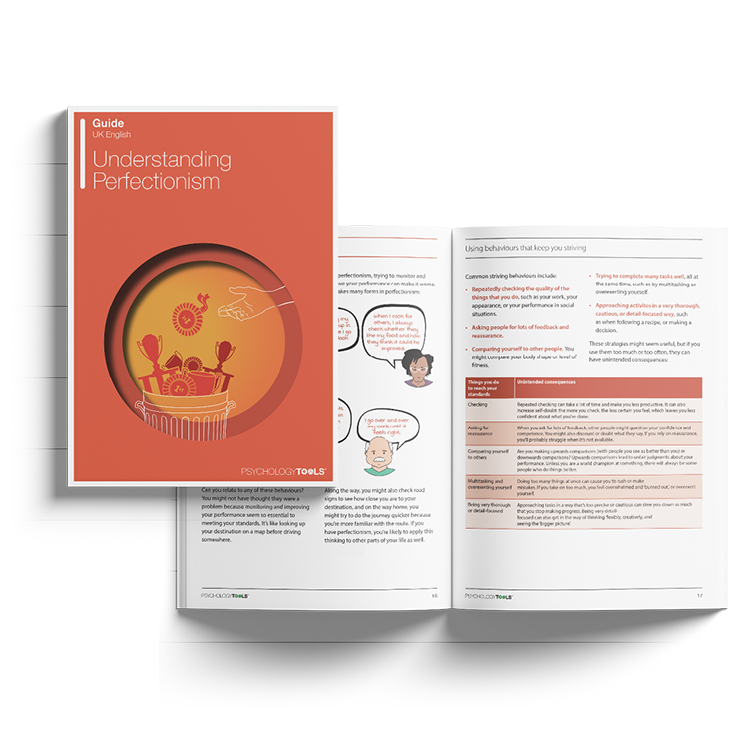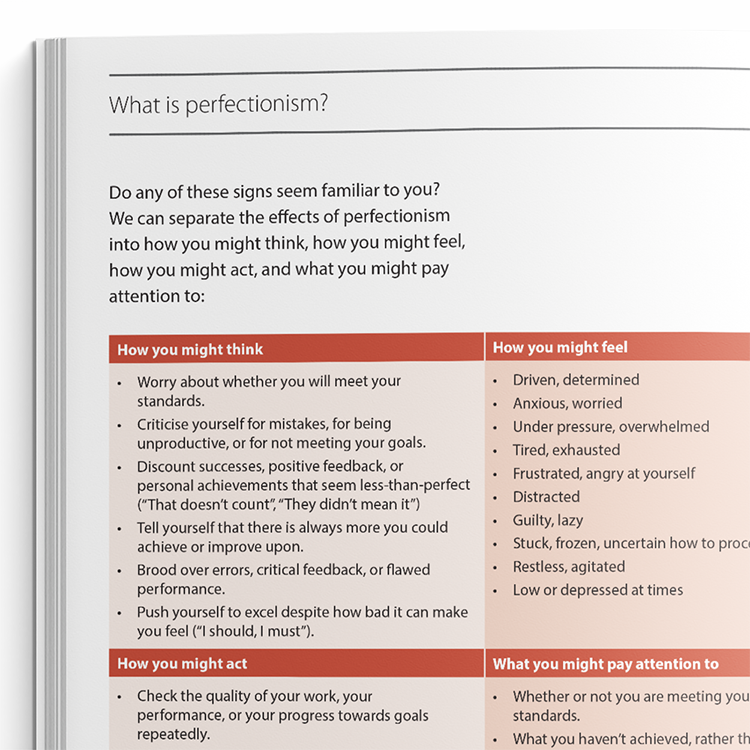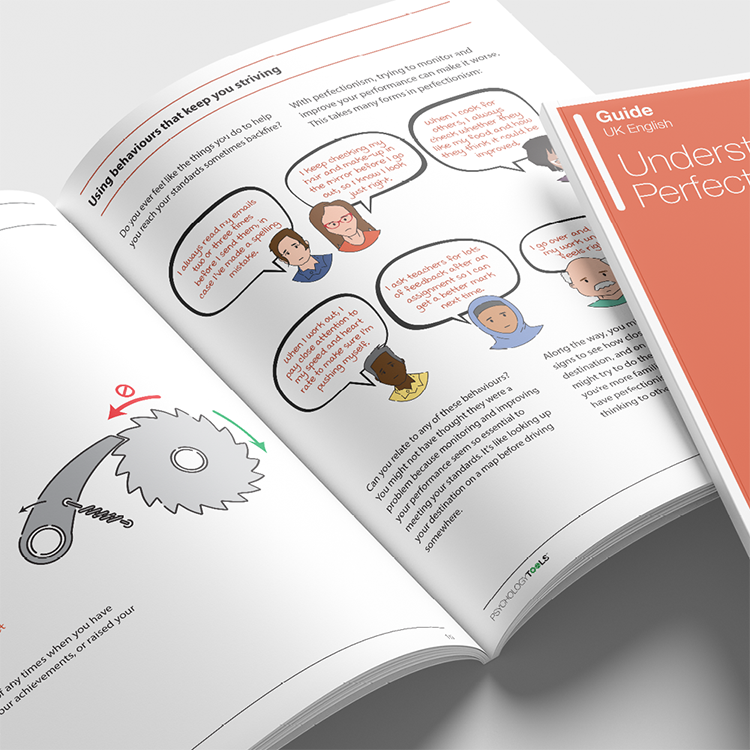Guide (PDF)
A psychoeducational guide. Typically containing elements of skills development.
An accessible and informative guide to understanding perfectionism, written specifically for clients.

A psychoeducational guide. Typically containing elements of skills development.
To use this feature you must be signed in to an active account on the Advanced or Complete plans.

Our ‘Understanding…’ series is a collection of psychoeducation guides for common mental health conditions. Friendly and explanatory, they are comprehensive sources of information for your clients. Concepts are explained in an easily digestible way, with plenty of case examples and accessible diagrams. Understanding Perfectionism is designed to help clients with perfectionism to understand more about their condition.
This guide aims to help clients learn more about clinical perfectionism. It explains what perfectionism is, what the common symptoms are, and effective ways to address it, such as cognitive behavioral therapy (CBT).
Designed to help clients understand and learn more about clinical perfectionism.
Identify clients who may be experiencing clinical perfectionism.
Provide the guide to clients who could benefit from it.
Use the content to inform clients about perfectionism and help normalize their experiences.
Discuss the client's personal experience with perfectionism.
Plan treatment with the client or direct them to other sources of help and support.
Striving toward personal goals and ambitions can be a valuable and fulfilling part of life, often associated with a sense of achievement and personal growth. However, for some clients, this drive can become problematic - particularly when they impose excessively high standards on themselves in areas such as performance, appearance, or behaviour.
When clients evaluate their self-worth primarily through the lens of achievement, or when the pursuit of these standards leads to significant distress or impairment, they may be experiencing clinical perfectionism.
Clinical perfectionism can be a clinically significant difficulty in its own right. It is also recognised as a contributing factor to a range of mental health problems, including anxiety disorders, depression, and eating disorders. Importantly, cognitive behavioral therapy (CBT) has been shown to be an effective psychological intervention for addressing perfectionism and its associated difficulties.

Just enter your name and email address, and we'll send you Understanding Perfectionism (English US) straight to your inbox. You'll also receive occasional product update emails wth evidence-based tools, clinical resources, and the latest psychological research.
Working...
This site uses strictly necessary cookies to function. We do not use cookies for analytics, marketing, or tracking purposes. By clicking “OK”, you agree to the use of these essential cookies. Read our Cookie Policy